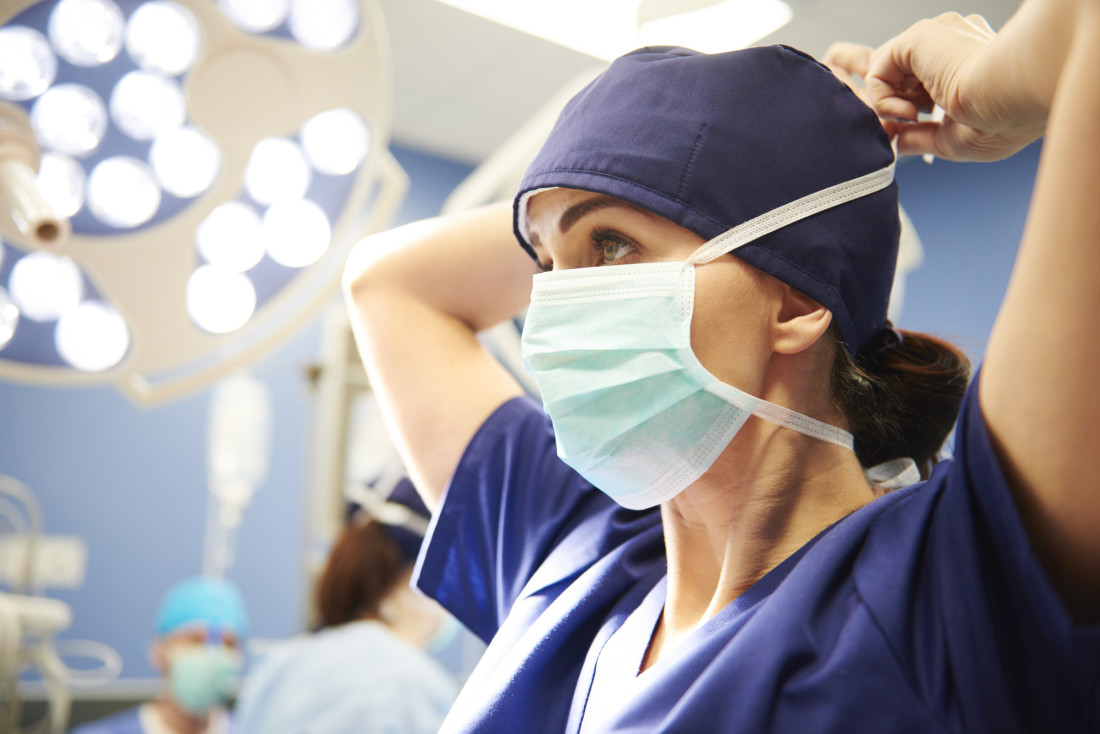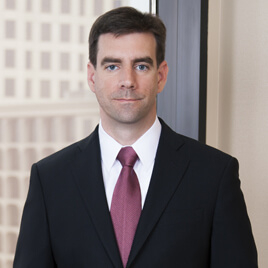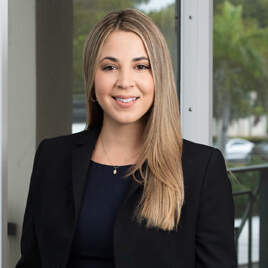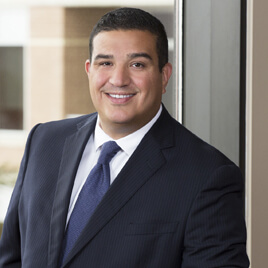
Workers Compensation
Workers Compensation insurance provides the exclusive remedy for employees who sustain bodily injury by accident or disease in the course and scope of their employment. With respect to bodily injury by disease, e.g. COVID-19, most workers compensation policies require that the disease be caused or aggravated by the conditions of employment. Accordingly, most claims for exposure or illness due to COVID-19 will not be considered compensable occupational injuries, without the requisite showing, including expert medical opinion within reasonable medical probability, that exposure to COVID-19 occurred while in furtherance of work-related activities.
Impact of State law
In the case of health care workers, first responders, and other employees performing essential services who are likely to be among a significant population of individuals who allege exposure to COVID-19 caused or aggravated by the conditions of employment, Workers Compensation insurance will almost certainly apply. In fact, state governments have already begun taking steps to ensure workers' compensation protections for health care workers and first responders who are on the front lines of the COVID-19 outbreak. In Washington State, for example, it was recently announced that workers' compensation protections are extended to health care workers and first responders under quarantine for COVID-19, which includes benefits for medical testing, treatment expenses if a worker becomes ill, and time-loss payments for those who cannot work if they are sick or quarantined. The Governor of Washington announced that the mandated workers compensation coverage applies retroactively for eligible workers under quarantine before the law took effect.
Some states, such as Minnesota have issued executive orders that emergency first responders and health personnel do not need to offer "proof" they contracted COVID-19 if they contracted the disease while working on the job, while all other workers testing positive for COVID-19 must prove by a preponderance of the evidence that work caused or substantially contributed to the alleged work injury. Massachusetts has a similar bill pending (SB 2602).
As more states begin taking legislative action to protect those frontline workers, the landscape of Workers Compensation insurance law will continue to evolve, as the obligations owed by those insurers may be dictated by recently implemented laws and decrees, e.g. removing the requirement to demonstrate "proof" that COVID-19 was contracted as a result of employment in the case of healthcare workers and first responders. There is potential for those laws to be extended to include employees of certain "essential businesses" such as pharmacies, grocery stores and gas stations. Employees of those businesses may present claims for exposure to the virus as a result of coming in to contact with a fellow employee or customer that has COVID-19. It is important that insurers remain cognizant of all state and federal legislation concerning "work-related" exposure to COVID-19, as it may directly impact the obligations owed by Workers Compensation insurers.
The current law in states like New York, New Jersey and Michigan have different ways of determining whether an infectious disease is compensable. In New York, to determine whether or not COVID-19 is compensable, it must first be determined whether the alleged claim is for an occupational disease or an accidental injury.
For New York claims, it must first be determine whether a claim for COVID-19 is based on an occupational disease claim or a specific accidental exposure/injury. An occupational disease claim for COVID-19 will likely be compensable if the claimant is continuously exposed to the virus as a distinctive feature of the employment. Naturally, we can expect claims filed by medical professionals and first responders to be compensable, as continuous exposure to patients with infectious diseases is a distinctive feature of their employment. On the other hand, it may be less likely that an occupational claim by a grocery store worker will be deemed compensable.
As a general rule, an occupational disease is a condition that derives from the very nature of the employment and which is caused by conditions to which all employees of a class are subject, and not from an environmental condition specific to the place of work (Matter of Bates v Marine Midland Bank, 256 AD2d 948 [1998]; Matter of Paider v Park East Movers, 19 NY2d 373 [1967]; Matter of Goldberg v 954 Marcy Corp., 276 NY 313 [1938]). Thus, in order to demonstrate entitlement to benefits based upon an occupational disease, a claimant is required to establish a recognizable link between his or her condition and a distinctive feature of his or her occupation (Bates, 256 AD2d 948 [1998]). The Board Panel has held that in order to recover under a claim for occupational disease, a claimant does not have to pinpoint a specific exposure to the infectious disease. Rather, in an occupational disease case, it is only necessary to show employment consisting of continuous exposure to potentially dangerous products and that the exposure to such products is a distinctive feature of the employment.
For example, in Matter of Auburn Memorial Hospital, 1990 NYWCLR (LRP) LEXIS 240, 90 NYWCLR (LRP) 1093 (N.Y. Workers' Comp. Bd. July 13, 1990), the Board Panel found an occupational disease claim for tuberculosis to be compensable because the claimant was a registered nurse and the infectious disease was causally related to the claimant's contact with patients in the Auburn Memorial Hospital operating or recovery room in the course of work duties as a nurse.
On the other hand, in Matter of American Eagle Airlines, 2011 NY Wrk. Comp. LEXIS 3018 (N.Y. Workers' Comp. Bd. May 26, 2011), the Board affirmed the disallowance of an occupational disease claim for a work related exposure to a spore that caused blastomycosis. The Board Panel held there was no recognizable link between the claimant's job as an airline stewardess and the contraction of an infectious disease due to exposure to a rare fungus spore. Likewise, there was no evidence that all flight attendants would be exposed to such spores during the course of their work, and it is clear that the claim in this case pertains to an alleged exposure specific to the locations where the claimant worked.
Under some circumstances, the contraction of an infectious disease can be found to be an accidental injury within the meaning of the New York Workers’ Compensation Law (Matter of Connelly v Hunt Furniture Co., 240 NY 83 [1925]). "As to infectious diseases contracted in the course of employment, the accident requirement has been interpreted to mean that 'the inception of the disease must be assignable to a determinate or single act, identified in space or time'" (Matter of Albrecht v Orange County Community Coll., 61 AD2d 1068 [1978], aff'd 46 NY2d 959 [1979]). "Compensation has been allowed for infectious disease in many cases, but only where there was some discrete event or series of events which could reasonably be deemed to mark the onset of the infection" (Id. at 1069).
A discrete event resulting in the onset of an infection sufficient to constitute an accidental injury has been found, for example, when the record contains evidence that the claimant was exposed to a person known to be infected with the disease later contracted by the claimant (Matter of Middleton v Coxsackie Correctional Facility, 38 NY2d 130 [1975]; Matter of McDonough v Whitney Point Cent. School, 15 AD2d 191 [1961]; Matter of Gardner v New York Med. Coll., 280 AD 844 [1952], aff'd 305 NY 583 [1953]), when a decedent contracted malaria from a mosquito bite (Matter of Lepow v Lepow Knitting Mills, 288 NY 377 [1942]), and when a decedent was infected though a cut on his hand while handling a gangrenous corpse (Connelly, 240 NY 83 [1925]). However, an infectious disease that is contracted through normal bodily processes (e.g., breathing), "at a time and place which cannot be specified," cannot be considered an accidental injury within the meaning of the workers compensation law (Albrecht, 61 AD2d 1068 [1978], affd 46 NY2d 959 [1979]). In Albrecht, the decedent, a professor, contracted polio and died while traveling in Africa during a sabbatical. The court in Albrecht concluded, based on the record before it, that because the decedent contracted polio through "normal channel of entry," at a time and place that could not be specified, he did not sustain in accidental injury (Id.).
It may be more difficult to establish compensability for COVID-19 claims as an accidental injury in New York. The claimant has the burden of producing sufficient evidence of a single incident where he/she was exposed to the virus. The claimant will also need to rebut any evidence that they could have contracted the disease while not in the course of employment (e.g., commute to/from work, recreational activities, exposure to an infected family member). The claimant will likely have a compensable claim for an accidental exposure to COVID-19 if they produce the following: 1) medical report or positive test for COVID-19; and 2) sufficient evidence of exposure to the virus at a specific time and place (e.g., exposed to co-worker who is diagnosed, or exposed to others in the workplace).
In New Jersey, however, compensability may be more easily proven. The question of compensability in New Jersey will come down to whether there is a greater probability that a petitioner would have contracted it at work versus when not at work. That may be easier for an employee who is working during a “stay at home” directive for the rest of the population.
Under New Jersey law, an occupational disease is a disease arising out of and in the course of employment, which are due in a material degree to causes and conditions which are or were characteristic of or peculiar to a particular trade, occupation, process, or place of employment. N. J. Stat. Ann. § 34:15-31; Bird v. Somerset Hills Country Club, 309 N.J. Super. 517 ; 707 A.2d 1033 ; 1998 N.J. Super. LEXIS 126 (N.J. App. Div. 1998).
Where an employee seeks to recover benefits for an occupational disease because of exposure to the general environment to which the rest of the public is also exposed, the employee must present sufficient, credible, objective evidence that will raise the compensation court's determination from one of conjecture to one of cautious reasoned probability. Laffey v. City of New Jersey, 289 N.J. Super. 292; 673 A.2d 838; 1996 N.J. Super. LEXIS 154 (N.J. Super. 1996).
In Bird, a workers compensation claim by an employee who contracted Lyme disease was found compensable because the employee was able to prove that his full time work as a groundskeeper exposed him to ticks over a 40 hour workweek that was substantially greater than the few hours per week that he spent at home. The court did not require the employee to prove exactly where and when he was bitten by the tick which caused his disease. The court affirmed the trial court's determination that it “was more probable than not” the employee's disease was caused at work.
In Michigan, like New York and New Jersey the Workers’ Disability and Compensation Act provides that “personal injury” shall include a disease or disability which is due to causes and conditions which are characteristic of and peculiar to the business of the employer and which arises out of and in the course of the employment. In contrast, an ordinary disease of life is one to which the public is generally exposed outside of the employment. Mich. Comp. Laws § 418.401(2)(b).
It is not the resulting disability that determines whether a disease is an occupational disease, but rather how it was caused. Roberts v Western Michigan Foundry, 1980 WCABO 2028. The determination is “on the bases of the quality, nature, and relative uniqueness of the work performed or, the exposure endured.” Id. at 2029. Assessment of these factors help in uncovering whether the disease is due to causes and conditions “characteristic of and peculiar to the business of the employer.” Id. at 2030.
Although in Michigan, workers’ compensation is not payable for the ordinary diseases and infirmities of life, it is payable for work-related acceleration and aggravation of such diseases and infirmities. Kostamo v Marquette Iron Mining Co, 405 Mich 105, 119, 274 NW2d 411 (1979).
In the matter of Basil v Butterworth Hospital, 272 Mich. 439 *; 262 N.W. 281 **; 1935 Mich. LEXIS 502, the employee was a cafeteria worker in a hospital. Although the hospital did not take in scarlet fever patients, a student nurse contracted the disease. The employee claimed that she contracted it from the student nurse and presented evidence showing contact with the nurse that made it possible. The court held that the employee had not suffered a personal injury arising out of and in the course of her employment entitling her to compensation for the resulting disability. The court noted that this was not a compensable occupational disease because the hospital did not take infected patients so it was not part of the employee's duties to work around infected patients.
In Gacioch v. Stroh Brewery Co., 187 Mich. App. 260 (1990), the workers compensation board determined that the employee's alcoholism was an ordinary disease of life, that had been exacerbated by the inherent characteristics of the employee's work at the brewery. The board found that the employee's death, caused by alcoholism, was caused by his work at the brewery. The unique circumstances of the employment shaped the course of the decedent's disease, aggravating and accelerating the underlying predisposition to alcoholism to the point of uncontrolled addiction, thus constituting a personal injury under the act.
For Michigan, compensability for COVID-19 will depend on whether the employee can establish that the virus is an occupational disease or an ordinary disease of life that was caused by or aggravated and accelerated by the conditions which are characteristic of and peculiar to the business of the employer and which arises out of and in the course of the employment. The workers' compensation statute recognizes the distinction between occupational diseases and otherwise non-compensable diseases aggravated by an occupational disease by allowing compensation only for the amount of disability caused by the occupational disease alone. Thus, to be compensable in Michigan, the employee would have to show a causal relationship between the nature of his/her work duties performed and contracting the virus. Professionals (such as hospital staff) who are rendering aid to patients diagnosed with the virus, would likely have a basis for a compensable claim.
Date of Exposure and Absence from Work during Quarantine Period
A key component of Workers Compensation insurance, is that the employee's last day of last exposure to the conditions causing or aggravating the employee's bodily injury by disease occur during the policy period. Coverage issues may arise when determining the date an employee sustained "bodily injury" as a result of COVID-19, for purposes of determining the applicable policy and/or policy period for triggering coverage under a Workers Compensation policy. Many states have held that the date of "exposure" constitutes the date of injury. In the case of COVID-19, where symptoms may not be felt for several weeks, if at all, the question of when an employee was "exposed" to the virus, may become a point of contention depending on the applicable state law and the facts and circumstances surrounding the employee's claim.
There also remains a question as to whether an employee absent from work during a period of quarantine or monitoring can trigger coverage under a workers' compensation policy, even if the employee ultimately tests negative for the illness. Given that some employers may require employees to remain in quarantine who are considered to be at a greater risk of contracting COVID-19, or may require employees to undergo screening for the virus, as part of their written protocol, coverage under Workers Compensation policies may be triggered for such an employee. In such instances, insurers should consider requesting the policies and procedures implemented by their insureds, when reviewing COVID-19 claims by employees of the insureds.
Conduct that is Intentional or Willful
Most state laws provide certain exceptions to the rule that Workers Compensation insurance serve as the exclusive remedy for employees who sustain bodily injury as a result of their employment. When such an exception applies, this will in turn allow the employee to pursue damages from an employer beyond that which is permitted by the workers compensation law(s). One exception recognized in many jurisdictions is when an employee sustains injuries as a result of an employer's intentional act(s). Some jurisdictions deem an employer to have intended the injury sustained by an employee, when the employer had actual knowledge that an injury was certain to occur and willfully disregarded that knowledge.
As a result of the current pandemic, the insurance industry may begin to see claims by employees against their employers for exposure to COVID-19, due to alleged intentional or willful conduct by their employers. Such claims may include allegations that an employer failed to provide proper protective equipment, such as gloves, masks, hand-sanitizer, which the employer knew was virtually certain to result in the employee's exposure to the virus. Consequently, insurers should be prepared for claims by employees against their employers seeking damages outside the confines of the workers compensation laws.
Exclusive Remedy?
The U.S. Senate is currently working on a stimulus bill, which may provide financial relief to both employers and employees in order to address the economic impact of the COVID-19 pandemic. When/if such a bill is passed, there may be a question as to whether payment by the government to those employers and employees impacts, in any way, the benefits payable under a Workers Compensation policy. In the event the legislation is ultimately passed, insurers should analyze the specific terms of the bill, including its potential interplay with insurance benefits payable for COVID-19 related claims.
Employer's Liability
Part Two of a standard Workers Compensation and Employers Liability policy generally applies to bodily injury by accident or by disease, if (1) the bodily injury arises out of and in the course of the injured employee's employment by the insured employer; (2) the employment is necessary or incidental to the insured employer's work in a state or territory listed in the policy's Information or Declaration Page; (3) the bodily injury by disease is caused or aggravated by the conditions of employment, and the employee's last day of last exposure to the conditions causing or aggravating such bodily injury by disease during the policy period; and (4) the original suit and any related legal action for damages for disease is brought in the United States, its territories or possessions, or Canada.
By contrast to Part One, which provides benefits under Workers Compensation law(s), Employers Liability covers sums that an insured employer must legally pay as damages because of bodily injury to its employees for: (1) damages an insured employer is liable to a third party by reason of a claim or suit against the insured employer by that third party to recover the damages claimed against such third party as a result of injury to an employee; (2) for care and loss of services; (3) for consequential bodily injury to a spouse, child, parent, brother or sister of the injured employee, provided that these damages are the direct consequence of bodily injury that arises out of and in the course of the injured employee's employment by you; and (4) because of bodily injury to an employee that arises out of and in the course of employment claimed against the insured employer in a capacity other than as employer. Generally, if a claim or suit is covered by Part One, it will be excluded under Part Two.
In addition to claims by employees brought under Part One for Workers Compensation benefits as a result of exposure to COVID-19, we are likely to see claims presented by family members of those employees who contract COVID-19 or seek damages for care and loss of services of those employees, under Part Two. Critical to the determination of whether there is coverage under Part Two for a family member who contracts COVID-19 from an infected employee, is whether the family member's damages are a "direct consequence" of the employee's exposure to COVID-19 arising out of and in the course of employment. This will require careful analysis of the policy language, applicable state law and investigation into the facts of the particular claim.
Insurers should also be mindful that while bodily injury occurring outside the U.S., its territories or possessions and Canada will generally be excluded under Part Two, if the injuries are sustained by a citizen or resident of the U.S. or Canada who is temporarily outside these countries, coverage will not be excluded. Consequently, those insurers who provide Employer's Liability coverage to companies that conduct business outside the U.S. and/or require employee travel, should be prepared for potential claims stemming from exposure to COVID-19 during business-related travel.
Foreign Workers Compensation and Employers Liability Insurance
Companies that employ workers outside the United States or maintain a physical location in other countries, may have what is often referred to as Foreign Voluntary Workers Compensation Coverage, or Employers Responsibility Coverage. This form of coverage provides benefits on behalf of employers for employees who sustain occupational injuries while working in a foreign country. Of note, these types of policies or endorsements generally provide coverage for bodily injury or death due to "endemic diseases". It is unknown at this time whether COVID-19 will be construed as an "endemic disease". In light of the global spread of COVID-19, and impact on U.S. businesses both domestically and abroad, there is likely to be a surge of claims for Foreign Voluntary Workers Compensation coverage by employees who have contracted COVID-19 during work-related travel abroad. Insurers should be mindful of potential benefits payable under such policies, and to ascertain priority of coverage, as interpretation and comparison of "other insurance" clauses in several policies may come into play.
As this situation continues to unfold, experienced coverage attorneys at Segal McCambridge Singer & Mahoney continue to monitor COVID-19 and its impact on our insurance company clients. SMSM are closely monitoring trends, in terms of the types of cases and claims being presented, as well as updates on federal and state laws concerning COVID-19. SMSM is prepared to discuss and offer guidance to all insurers during these uncertain times.




